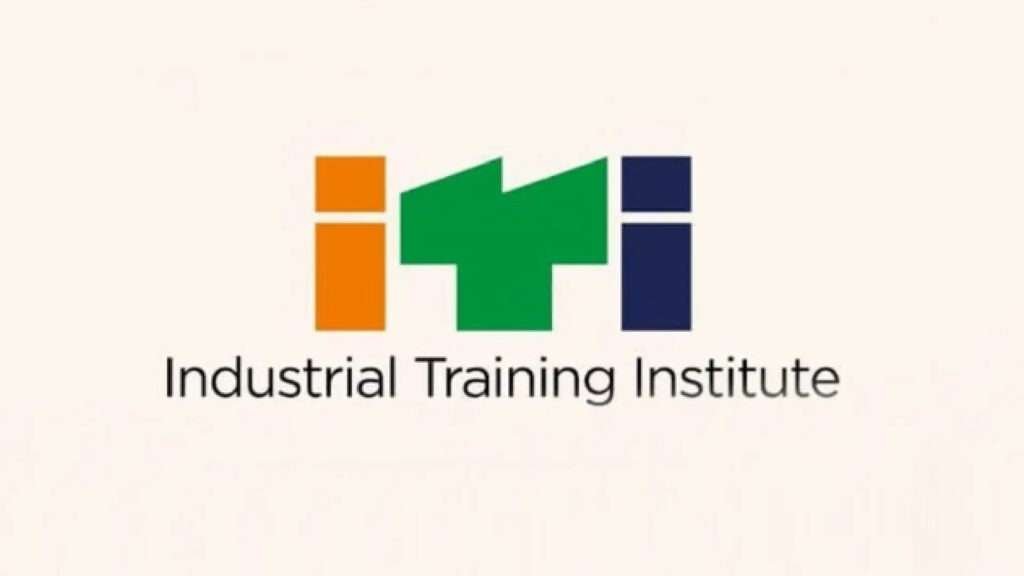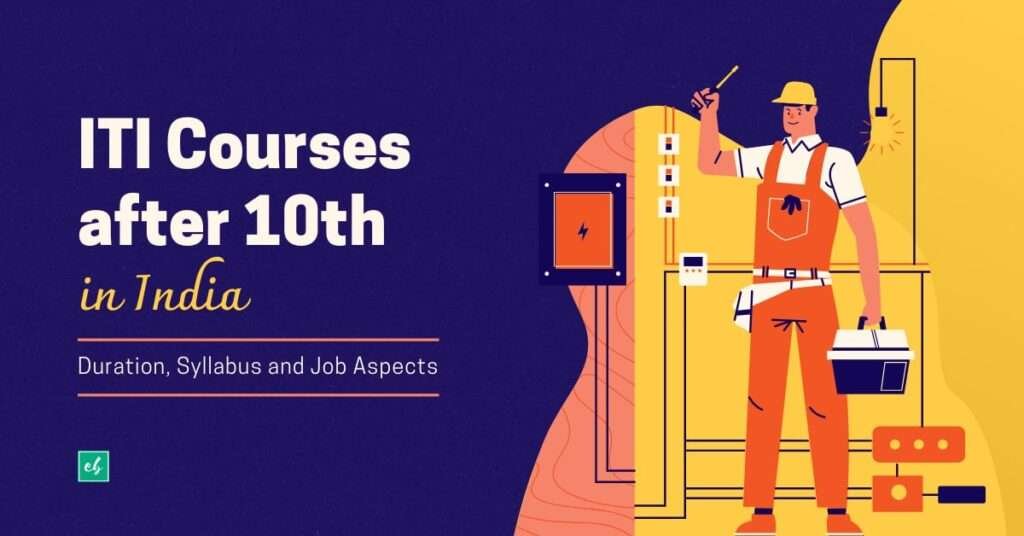“NAMASKAR DOSTO”
Today we will talk about whether, if we want to do a job with a good salary in the future, we should do polytechnic or ITI. Which Is the Polytechnic or ITI? Which one is better among the two, and by doing which course among the two, we can get a better job?
Look, friends, let me tell you that a Polytechnic or Diploma is a certificate that you receive when you complete a course of study, often at a college. ITI is a vocational training program focusing on practical and hands-on training in a specific trade or craft. So friends, let’s start and learn about them in detail
Table Of Content:-
- What Is Diploma/Polytechnic
- What Is the Qualification of Diploma Courses?
- Duration Of Diploma Course
- How Many Courses In Diploma?
- Best High Salary Courses In Diploma
- What Is ITI?
- What Is The Qualification of ITI
- Duration of ITI Course
- How Many Courses In ITI?
- Best High Salary Courses In ITI
So friends, first of all we will know about Polytechnic, its eligibility anDiploma/Polytechnic?cope
What is Diploma/Polytechnic
A document given by an educational institution conferring a degree on a person or certifying that the person has satisfactorily completed a course of study.

Diploma/Polytechnic education is a type of technical education that teaches practical skills and theoretical information in a variety of sectors, including engineering, technology, and vocational training. Here’s a breakdown of what diploma or polytechnic education entails:
Diploma programs normally last three years, though this varies by country and program. Some diploma courses can be shorter or longer.
The curriculum of diploma/polytechnic programs is intended to equip students with a thorough understanding of their chosen area. It combines academic coursework with practical training, which may involve laboratory work, workshops, and industry training.
Diploma/polytechnic education encompasses a broad range of disciplines, including:
Engineering disciplines include mechanical engineering, electrical engineering, civil engineering, electronics engineering, and computer science, among others.
Technology sectors include information technology, computer applications, telecommunications, and so on.
Automotive technology, building technology, hospitality management, fashion design, and other fields are all vocational.
Entry Requirements: Diploma/polytechnic programs typically require a high school diploma or its equivalent. Some programs may have additional criteria or prerequisites based on the individual subject of study.
Career Opportunities: After completing a diploma/polytechnic program, graduates have the skills and knowledge required to pursue entry-level positions in their chosen profession. They can work in industries related to their specialization or continue their study by transferring into bachelor’s degree programs.
Further Education: Diploma and polytechnic education can lead to higher education. Many universities and colleges, depending on the country and academic laws, provide lateral entry opportunities for diploma holders to enter bachelor’s degree programs in the second or third year.
Overall, diploma/polytechnic education provides practical and job-oriented training, transforming graduates into useful assets in a variety of industries and sectors. It provides an alternate path for individuals who prefer hands-on learning and want to enter the workforce sooner than traditional
What Is the Qualification of Diploma Courses?
The criteria for diploma courses differ depending on the country, educational institution, and topic of study. However, most diploma courses have some similar eligibility criteria:
Educational Requirements: Typically, candidates must have finished secondary education or its equal, such as high school or its equivalent exams. Some diploma programs may specify specific subjects or minimum grades in those disciplines.
Age Requirement: After completing the course, the Diploma will be conferred only if the Original Degree Certificate is presented for verification at IIMC’s office. Age Limit: General Category candidates must be born on or after 1.8. 1999 (maximum age 25 as of August 1, 2024). For the OBC category, the date of birth must be 1.8.
There may be a minimum age restriction for entry to diploma courses, however, this varies by institution and nation.
Language fluency: Depending on the medium of instruction, institutions may require candidates to demonstrate fluency in the language of instruction, which could be English or the country’s official language.
Prospective students should carefully consider the admission requirements for the diploma course and institution to which they wish to apply. Admission standards can vary, therefore it’s best to contact the relevant educational institution or visit their official website for more information on eligibility and admission procedures.
Duration Of Diploma Course
Diploma courses typically vary in length based on the location, topic of study, and institution conducting the program. However, the most frequent period for diploma courses is between one and three years. Here’s the breakdown:

1-Year Diploma Courses: Some diploma programs are designed to be completed in one year. These courses frequently focus on specific skills or occupational training and are ideal for anyone who wish to swiftly achieve competence in a specific field.
2-Year Diploma Courses: Many diploma programs last two years. These courses offer a more comprehensive education than one-year diplomas and cover a greater range of topics within the selected field.
3-Three-year diploma courses are some of the most frequent. They provide a more in-depth investigation of the subject, incorporating both academic understanding and practical skill training. These programs are frequently equivalent to the first few years of a bachelor’s degree program and may allow for more education via lateral entrance into bachelor’s degree programs.
4-Varying Duration: Diploma programs might be shorter or longer than the conventional one to three years, depending on the country’s education system, certification criteria, and industry standards.
Diploma courses can vary in length, but they are generally meant to equip students with practical skills and knowledge that will enable them to enter the workforce or advance their study in their chosen sector.
How Many Courses In Diploma?
Whatever you choose, if you want to acquire a degree, you’ll most likely be able to choose from a variety of options available around the world. After completing the 12th grade, students can pick from approximately 263 different courses in the diploma.

Engineering and Technology
Mechanical engineering
Electrical engineering
Civil Engineering
Electronic Engineering
Computer Science & Engineering
Information Technology
Chemical engineering
Automotive Engineering
Aerospace Engineering
Biotechnology
IT and Computer Applications:
Applications for Computers
Programming Languages
Data Processing
Networking of Computers
Web Design
Animation and Multimedia
Online safety
Allied and Healthcare Science:
Pharmacy, Medical Laboratory Technology, and Nursing
Dental Mechanisms
Imaging Technologies and Radiography
Physiotherapy and Optometry
Business and Administration Management:
Enterprise Management
Store Administration
Management of Human Resources
Management of Marketing
Administration of Finances and Events
These are only a few examples; several diploma courses are available in specialized subjects such as environmental science, renewable energy, instrumentation technology, and others. Diploma course availability varies per institution, and new courses may be added to match changing industry demands.
Best High Salary Courses In Diploma
Friends, way too many are diploma courses, which offer salary packages and also have a lot of scope but if you have done any course and can do well in it or have good knowledge about it, then you have to worry about your salary. There was no need because if you can make a person do good work, you have the right to ask for a good salary. We have written another detailed article on this topic; you can check it.
Here are a few courses that can lead to high-paying jobs:
Diplomas: Engineering and Medical Lab Technology (MLT).
Diplomas: Digital Marketing and Interior Design.
Diploma in hotel management.
Diploma in Culinary Arts.
Diploma in Financial Accounting.
Candidates you can check here also best diploma colleges in Uttar Pradesh
Above we told you about Diploma, now we will know about ITI. So let’s Start
What Is ITI?
ITI stands for Industrial Training Institute. It is a vocational training college in India that provides several technical courses to students who have completed their secondary education (often after the tenth grade). These courses aim to equip students with practical skills and knowledge in certain crafts or fields, allowing them to pursue employment in industries such as engineering, construction, manufacturing, and electronics.

ITIs provide a variety of trade courses, including electrician, mechanic, plumber, welder, machinist, carpenter, computer hardware, and software. These courses normally last from six months to two years, depending on the trade and curriculum.
ITIs give training that blends theoretical knowledge with hands-on practice in workshops or laboratories. Students are trained on a variety of machines, tools, and equipment specific to their chosen trade. After completing the course, students are offered a certificate or diploma that allows them to work in their respective industries or advance their studies.
ITIs play an important role in skill development and vocational training in India, bridging the gap between formal education and industrial needs. They make major contributions to the country’s workforce by creating skilled technicians and craftsmen who are critical to the growth and development of industries in a variety of areas.
What Is The Qualification of ITI
Candidates who have completed at least class 8th are eligible to take an ITI course. However, certain courses require candidates to have completed at least Class 12th, hence the educational requirement varies from Class 8th to 12th depending on the subject. Also, only individuals aged 14 to 40 are eligible for ITI.

More eligibility mention below:
The requirements for admission to an ITI (Industrial Training Institute) vary based on the course and the restrictions established by the regulatory authority. However, in general, the typical qualifying requirements for ITI courses are:
Educational Requirements: Most ITI courses require candidates to have finished secondary school (10th grade or equivalent) from a recognized educational board. Some courses may require specified subjects or minimum grades.
Age Limit: Admission to ITI courses is sometimes restricted to individuals aged 14 to 25 years. However, this varies based on the institute and the subject.
Language Knowledge: Candidates must have at least knowledge of Hindi and English languages.
Prospective students must ensure that they understand the precise eligibility criteria and admission procedures for the ITI and course they are interested in, as these may differ from one institute to the next and area to region.
Duration of ITI Course
The duration of ITI (Industrial Training Institute) courses varies according to the individual trade and the curriculum established by the regulating government. However, most ITI courses last from six months to two years. Here’s a basic breakdown of the duration for the various types of ITI courses:

Short-term Courses: Some ITI courses are meant to teach basic skills in a short period of time, usually six months to a year. These courses may concentrate on trades like welding, plumbing, electrical, or computer hardware.
Longer Duration Courses: Other ITI courses are more comprehensive and can run one to two years. These courses frequently address more advanced topics and offer in-depth training in crafts including machining, electronics, carpentry, and automotive repair.
Apprenticeship Programs: In addition to standard courses, some ITIs provide apprenticeship programs that combine on-the-job training with classroom education. These programs might span one to three years, depending on industry requirements.
Prospective students should examine the duration of the ITI course they are interested in, since it can vary depending on the trade, the institute conducting the course, and any further certification or apprenticeship requirements.
How Many Courses In ITI?
ITI (Industrial Training Institute) provides a comprehensive range of vocational courses in a variety of trades to fulfill the varying skill requirements of industries. The number of courses offered at an ITI varies based on the institute’s infrastructure, facilities, and regulatory affiliation. However, the following are some common trades and courses provided by ITIs:

- Carpenter, Fitter, and Electrician
- Turner Carpenter, Welder, and Plumber
- A motor vehicle mechanic
- Engineer (Mechanical/Civil)
- Mechanic of Electronics
- Hardware and Networking for Computers
- Instrument Technician
- Air conditioning and refrigeration The mechanic
- General Painter
- Electronic system maintenance and information technology (IT & ESM)
- The mechanic Diesel Engine
- Wireman
- Masonry (construction laborer)
- Mechanic: Foundryman for Medical Electronics
- Page Mechanic for Metal Workers Tool and Die Maker for Radio and Television
- Making Dresses Hair and Skin Care Expert
These are just a few examples; ITIs provide a wide range of trades based on local job market need, industry requirements, and government restrictions. Furthermore, ITIs may create new courses or upgrade existing ones to reflect developing technology and shifting market trends.
Best High Salary Courses In ITI
Choosing the “best” high-salary course at ITI is determined by a variety of factors, including your interests, talents, industry demand, and regional employment market trends. Certain trades, however, tend to offer superior wage possibilities due to their high demand and specialized abilities. Here are several ITI courses with the potential for greater salaries:
Electricians: Electricians are in demand in a variety of industries, including construction, manufacturing, and maintenance. Skilled electricians who can install, maintain, and repair electrical systems are often paid well.
Mechanic (Motor Vehicle): As the automotive sector grows, there is a constant demand for skilled motor vehicle mechanics. ITI graduates who specialize in diagnosing, repairing, and maintaining automobiles can find high-paying work in auto service centers, dealerships, and fleet management firms.
Electronics Mechanic: As technology advances, there is an ongoing demand for professional electronics technicians capable of installing, maintaining, and repairing electronic equipment and systems. Specializing in consumer electronics, telecommunications, or industrial automation might result in high-paying jobs.
Computer Hardware and Networking: With the growing reliance on information technology, ITI graduates with expertise in computer hardware assembly, troubleshooting, and network setup and maintenance can find profitable employment in the IT industry.
These are just a few examples of ITI courses that can result in high-paying careers. Before selecting a course, make sure it corresponds with your career objectives and aspirations by researching local job market demand and salary trends. Furthermore, acquiring practical experience through internships or apprenticeships can boost your employability and earning potential in these high-demand trades.
Is Diploma Good or ITI
ITI is focused on practical work A diploma is a professional program
What is the highest salary in ITI
The highest-paying position at ITI is Deputy General Manager, with a salary of ₹5.4 Lakhs a year.
What is the highest salary in Diploma
The highest-paying job at Polytechnic is Lecturer, with a salary of ₹9.7 Lakhs annually.
